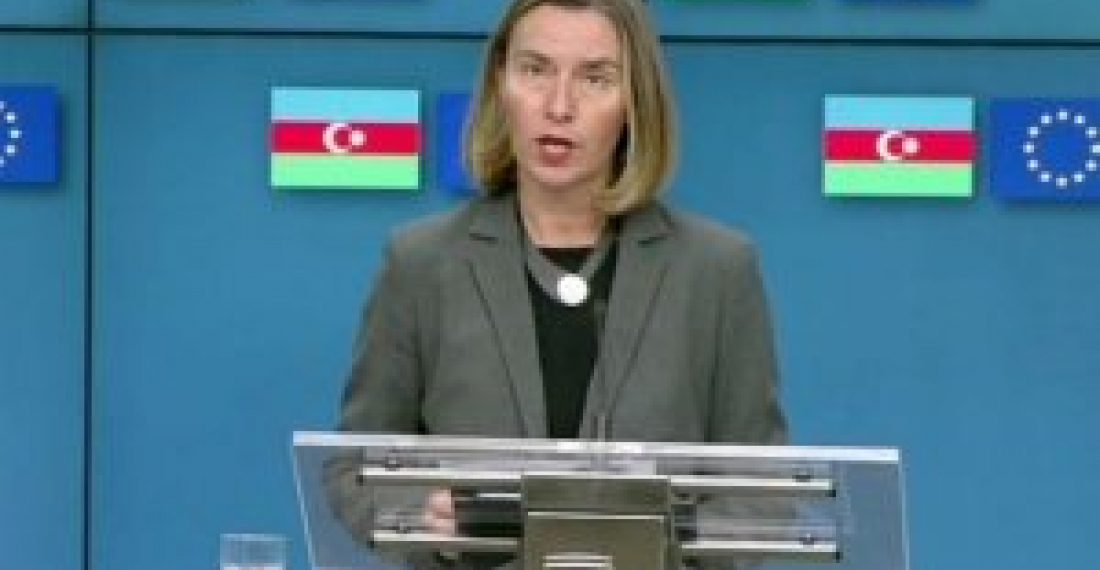"Азербайджан является важным партнером для Европейского Союза, независимость, суверенитет и территориальная целостность которого Европейский Союз полностью поддерживает". Об этом заявила Верховный представитель ЕС по внешней политике и политике безопасности Федерика Могерини после встречи Совета по сотрудничеству ЕС-Азербайджан, который прошел в Брюсселе в пятницу (9 февраля).
Касательно переговоров по всеобъемлющему новому соглашению между Европейским Союзом и Азербайджаном, Верховный представитель ЕС сказал, что вскоре эти переговоры могут быть завершены.
Касательно вопросов государственного управления г-жа Моргерини сказала: "Сегодня мы также подняли вопросы демократии, верховенства закона и уважения прав человека. Это часть прочной основы для взаимовыгодных отношений. Европейский Союз всегда подчеркивал, как делаем это снова, что для нас жизненно важно полное выполнение Азербайджаном международных обязательств. Это означает принятие рекомендаций Совета по приведению избирательного законодательства, свобод объединений и собраний, средств массовой информации в соответствие с международными стандартами, особенно в предвыборном контексте, в который вступил Азербайджан. Европейский Союз всегда подчеркивает важность уважения прав человека и основных свобод. Мы считаем, что жизненно важное гражданское общество имеет решающее значение для существования демократии и прогресса, и мы будем и впредь поддерживать это".
Г-н Могерини считает, что нагорно-карабахский конфликт является "очень серьезным вызовом", добавив, что "возобновление диалога на высшем уровне в Вене, Санкт-Петербурге и Женеве является важным событием. Мы хотели бы, чтобы стороны следовали бы своим договоренностям об активизации переговоров и снижению напряженности на линии соприкосновения".
"Статус-кво, по нашему мнению, является неустойчивым, и конфликт не имеет военного решения. Он нуждается в политическом урегулировании в соответствии с международным правом. Европейский Союз продолжает полностью поддерживать посреднические усилия и предложения Организации по безопасности через деятельность сопредседателей Минской группы, в том числе через нашего Специального представителя, и меры по укреплению доверия", - сказала г-жа Могерини.
Полный текст выступления Федерики Могерини вы можете прочитать здесь
источник: commonspace.eu по материалам пресс-службы Европейской службы внешних действий
фото: Выступление Федерики Моргерини в Брюсселе по итогам Совета по сотрудничеству ЕС-Азербайджан, 9 февраля 2018 года






